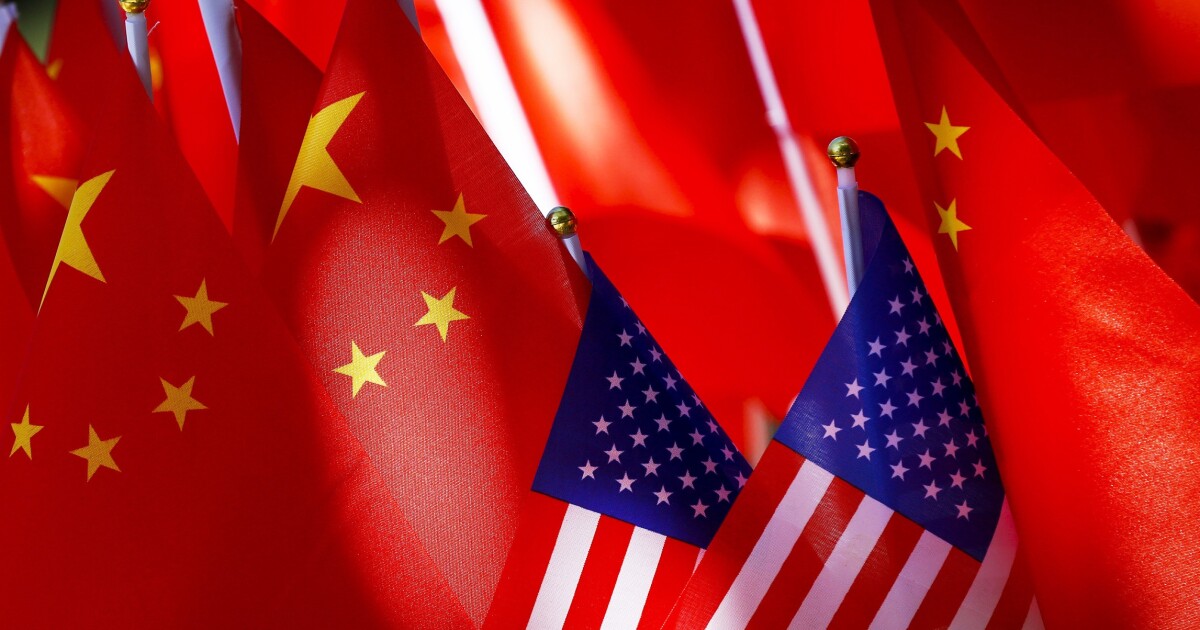

China’s People’s Liberation Army must “prepare for war” in order to ensure the communist regime’s various interests, a top military official emphasized, as Chinese General Secretary Xi Jinping charts the next five years of Beijing’s policies.
“The military has to maintain a high degree of vigilance, always prepare for war, and resolutely defend the country’s sovereignty, security, and development interests,” Chinese Defense Minister General Wei Fenghe said Wednesday.
CHINA FAULTS BLINKEN FOR DEMANDING ‘PEACEFUL RESOLUTION’ OF TAIWAN CONTROVERSY
Fenghe offered that exhortation against the backdrop of the 20th National Congress of the Chinese Communist Party, an every-fifth-year affair expected to grant Xi a third term in power. His coronation portends a continuation of policies and behavior that have brought Beijing’s claims to sovereignty over a range of territories into potential conflict with the United States and its allies — a prospect, Xi implied, that requires the People’s Liberation Army to improve its training and deployment patterns.
“We will intensify military training under combat conditions, laying emphasis on joint training, force-on-force training, and high-tech training,” Xi told the party congress this week. “We will become more adept at deploying our military forces on a regular basis and in diversified ways, and our military will remain both steadfast and flexible as it carries out its operations. This will enable us to shape our security posture, deter and manage crises and conflicts, and win local wars.”
U.S. and Chinese strategists have adopted a more adversarial outlook over the last several years. Xi has consolidated Beijing’s control over Hong Kong, signaled his intention to bring Taiwan under Chinese Communist authority, and asserted sovereignty over the vast majority of the South China Sea — a major swathe of water that courses between several countries with their own territorial claims, including U.S. allies.
“There has been a change in the approach from Beijing toward Taiwan in recent years,” Secretary of State Antony Blinken said this week. “And instead of sticking with the status quo that was established in a positive way, a fundamental decision that the status quo was no longer acceptable and that Beijing was determined to pursue reunification on a much faster timeline.”
U.S. and Chinese officials are racing to identify and mitigate their vulnerabilities to the kinds of power wielded by either side. Xi’s emphasis on military readiness would seem to reflect a recognition that Chinese troops lack the experience of U.S. forces in operating together in hostile environments. And Xi paired his message about military modernization with a series of warnings about his policy regarding Taiwan, the island democracy that Beijing regards as the final piece of Chinese Communist ambition to rule over the territory of the last Chinese empire.
“We have strengthened our strategic initiative for China’s complete reunification and consolidated commitment to the one-China principle within the international community,” Xi said. “We have resolutely opposed separatist activities aimed at ‘Taiwan independence’ and foreign interference. We have thus maintained the initiative and the ability to steer in cross-Strait relations.”
American policymakers, for their part, have scrambled to deny economic and technological advantages to Beijing — from then-Secretary of State Mike Pompeo’s campaign to stymie Huawei’s attempt to control Europe’s advanced telecommunications infrastructure, to President Joe Biden’s recent move to stop China from “using our technologies against us or their own people,” as a top adviser put it recently.
“Our competitors are using increasingly sophisticated means to illicitly acquire sensitive technologies, information, and know-how, and we must adapt accordingly,” White House national security adviser Jake Sullivan said last month. “Given the foundational nature of certain technologies, such as advanced logic and memory chips, we must maintain as large of a lead as possible.”
That technological constraint raises the prospect of “decoupling” — a disentanglement of the U.S. and Chinese economies that some observers, including political leaders in the region, fear could raise the likelihood of war by lowering the perceived economic cost of a conflict.
“Decoupling is a worry,” Singaporean Prime Minister Lee Hsien Loong told reporters in Australia this week. “But we do worry that valid national security considerations may trigger further consequences and may result in less economic cooperation, less interdependency, less trust, and, possibly, ultimately a less stable world.”
CLICK HERE TO READ MORE FROM THE WASHINGTON EXAMINER
Xi, while making his own protest against “decoupling,” emphasized his determination to develop innovative new measures to deter the U.S. military in a crisis.
“We will intensify troop training and enhance combat preparedness across the board to see that our people’s armed forces can fight and win,” he said. “We will establish a strong system of strategic deterrence, increase the proportion of new-domain forces with new combat capabilities, speed up the development of unmanned, intelligent combat capabilities, and promote coordinated development and application of the network information system.”







